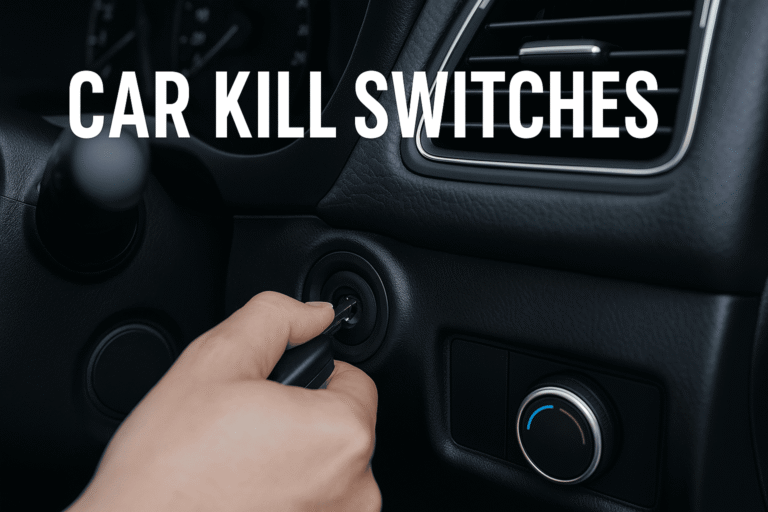Loaner Cars: What You Need to Know
If you’ve ever had your car in for repairs or maintenance, you might have heard the term Loaner Car. It’s a term that comes up often when car owners find themselves without their vehicle for a few days. But what exactly is a loaner car, and how does it work?
Find your passion – from wheels to CAR – only at https://ridenplay.online/category/car/
In this guide, I’ll break it down based on my personal experience and provide you with everything you need to know about loaner cars.
What Exactly Is a Loaner Car?
A loaner car is a vehicle that dealerships or auto repair shops provide to customers who need a temporary replacement while their own car is being serviced. It’s like a helping hand when your car is being worked on—whether it’s for regular maintenance or a repair that takes a few days to complete.

Most of the time, loaner cars are offered at no cost as part of the service agreement or warranty, though some dealerships or service centers may charge a fee depending on the circumstances. In my experience, I’ve found that loaner cars can be a real lifesaver, especially when your car is out of commission for an extended period.
Why Do You Need a Loaner Car?
Sometimes life happens, and your vehicle might need to go into the shop for an unexpected repair. This could be anything from a routine oil change to something more significant like an engine issue. A loaner car provides the convenience of not having to disrupt your daily routine. Rather than relying on friends, public transportation, or ride-sharing services, you can continue your daily activities without skipping a beat.
The Benefits of Having a Loaner Car
Convenience:
As mentioned, the primary benefit is convenience. Having a loaner car allows you to continue with your day-to-day activities without worrying about how to get from place to place.
No Disruption in Your Schedule:
A loaner car ensures that you don’t miss work, appointments, or social events simply because your car is unavailable.
Cost-Effective:
Most dealerships offer loaner cars free of charge, particularly if your car is still under warranty or if the repair will take a few days. This can save you the cost of alternative transportation.
Explore our exclusive range of rings, electric bikes, cars, and more — visit ridenplay.online now.
Peace of Mind:
Knowing you have a vehicle while yours is being repaired can give you peace of mind. This can be especially important when your car is in the shop for an extended time or when it’s a major repair.
How Do Loaner Cars Work?
Generally, loaner cars are available through authorized dealerships or repair shops. Here’s a breakdown of how the process works:
Schedule Your Service Appointment:
Once you know your car needs service, schedule an appointment with your dealership or repair shop. During the booking, you can inquire about a loaner car and whether it’s available.
Availability:
Depending on the location, loaner cars may not always be available, especially if there’s high demand. It’s a good idea to request one when you schedule the appointment to secure availability.
Loaner Car Agreement:
If a loaner car is available, the service center will have you sign a loaner car agreement. This typically includes things like the duration of the loan, any fees (if applicable), and the condition of the vehicle.
You seems to be more interested in Car and other vehicles related guide, you can check out our recent guide on:
Pinewood Derby Car Designs: Creative and Winning Ideas
Return Process:
When the repair is completed, you return the loaner car and retrieve your own vehicle.

What to Expect with a Loaner Car?
While a loaner car is designed to be a temporary replacement, it doesn’t always mean you’ll get the exact same make and model as your own vehicle. In some cases, you may receive a smaller or larger vehicle, depending on availability.
Some loaner cars are brand new models, while others may be slightly older but still in good condition. One thing to keep in mind is that some loaner cars are equipped with specific terms and conditions, such as mileage limits or fuel requirements.
Loaner Car Tips:
Check the Vehicle Condition:
Before you drive off, take a quick walk around the loaner car to ensure there’s no visible damage. Note any existing scratches or dents in the agreement to avoid being held responsible later.
Return it on Time:
When your car is ready, make sure to return the loaner car on time to avoid late fees or penalties.
Refuel the Car:
Some dealerships require you to return the loaner car with the same level of fuel it had when you received it.
Conclusion
A loaner car can be a valuable resource when your car is in the shop. From providing convenience to offering peace of mind, it allows you to continue with your routine while your vehicle is being repaired.
When requesting a loaner car, make sure to ask about any policies, fees, or restrictions, and always inspect the vehicle before driving off. Whether you’re a seasoned car owner or it’s your first time using a loaner car, it’s always a good idea to be informed and prepared.






